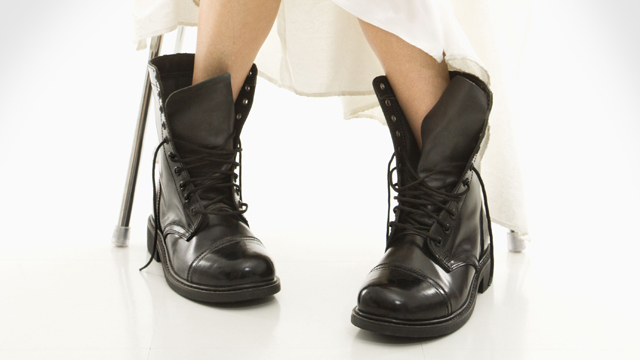
Karen Berg explains that "Empathy is when you move yourself out of the picture and the person you are talking to now becomes a part of you." Empathy is the ability to actually feel the emotions of someone else. When another person hurts, we hurt also. When another person is joyful, we feel their joy. This is very different than sympathy, which is feeling sorry or happy for someone, but not actually feeling their exact emotion. Having empathy helps us to understand each other, and respond authentically in any given moment. When we act with empathy, we see the humanity in others and are better able to make real connections. The woman who makes your coffee every morning is no longer just your local barista, she’s a college student struggling to pay her way through college. The gardener isn’t just the guy who cuts your lawn. With empathy he becomes the single father who adores his three kids.
Psychologists emphasize the importance of fostering empathy early in life. Research shows that developing strong empathic skills as a child, lays the foundation for a more successful adulthood. Once it was thought that if a child didn’t learn empathy at a young age he would be unable to develop it, but more and more research points to the possibility of learning empathy later in life. Teens and adults can build empathy by practicing a few simple techniques.
Ask, "How are you?" And mean it.
We may ask this question dozens of times in one day. However, how often do we really wait and listen to the answer? It’s a simple question that has the potential to create a connection between two people. When you ask someone how he or she is doing, pay attention to the answer. Most of us give stock answers. When you receive a "Fine" in response, try asking in a slightly different way. When we show that we are receptive listeners, others are far more likely to open up to us and share their true feelings. And "Before we can become good sharers," says Karen Berg, "we need to become good listeners."
Put on your detective cap.
When interacting with others, pay attention to what you see and hear: body language, tone of voice, and facial expressions. All of these are clues, telling us what someone is really thinking and feeling. When we encounter others who are aloof, critical, close-minded, or temperamental (to name a few), very often these characteristics are the result of hidden feelings. It is human nature to cover up our insecurities with these characteristics. It may take a little sleuth work, but by paying attention to the details of someone’s behavior, we are better able to deduce where they are coming from and respond with compassion and understanding.
Pick up a good book.
Reading literary fiction may boost your ability to empathize with others, according to David Kidd and Emanuele Castano who conducted a study at The New School for Social Research. Participants were asked to read nonfiction works and award-winning novels. Afterward, they were rated on their ability to understand others’ mental states. Those who read literary fiction fared far better than those in other groups who did not. The researchers believe that literary fiction helps readers to become more deeply acquainted with human idiosyncrasies, desires, and emotions.
Empathy is a key component of our spiritual development. It helps us to grow and increases our capacity to share. Even more importantly, "When we can feel the pain of others—even from 3,400 years ago, like Nadav and Avihu—it should not be because we become a better person from doing so;" says Rav Berg, "rather it should be because when we feel the pain of others, there is nothing in this physical reality that can threaten us."